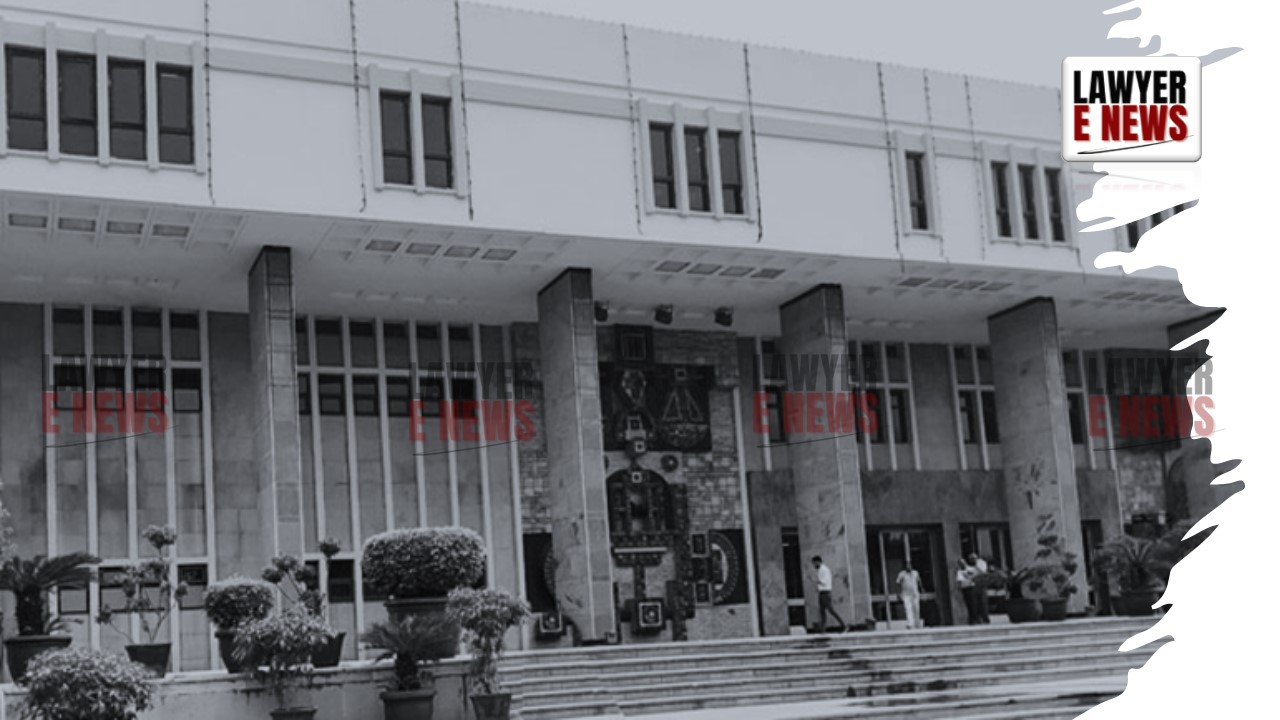-
by Admin
18 February 2026 2:25 PM



Intercepted calls and CDRs are not sufficient to prosecute without independent evidence - In a significant judgment Delhi High Court quashed the criminal proceedings initiated against M/s Prakash Industries Ltd., its Chairman & Managing Director Ved Prakash Agarwal, and Vipul Agarwal, Chartered Accountant of the company. Justice Chandra Dhari Singh held that, “The entire prosecution is fundamentally flawed, lacking any direct or independent evidence,” while underlining that call records and intercepted telephonic conversations alone are not sufficient to sustain charges of criminal conspiracy or corruption under Indian law.
“CDR reports and intercepted calls, without corroboration, are merely routine business communications, not evidence of criminal conspiracy”
The Court sharply noted that the case built by the CBI rested “solely on intercepted conversations and CDRs which merely reveal telephonic communications but not any criminal intent.” The Court stressed, “There is not a single piece of independent evidence that points towards a meeting of minds or any agreement to commit an illegal act between the petitioners and the other accused.” The Court rejected the theory that the mere engagement of a financial consultant and discussions over a loan proposal could amount to conspiracy.
“Conversations, Not Conspiracies” — Delhi HC
Justice Chandra Dhari Singh emphasized, “It is well settled that suspicion, however strong, cannot take the place of proof. Conversations regarding official or financial matters, however frequent, cannot by themselves prove conspiracy unless there is clear, independent evidence demonstrating an agreement to commit an illegal act.”
The case involved allegations that M/s Prakash Industries Ltd. secured an External Commercial Borrowing (ECB) loan of USD 20 million from Syndicate Bank with the help of Mr. Pawan Bansal of M/s Altius Finserve Pvt. Ltd. The CBI alleged that the loan was expedited through bribery involving senior bank officials, particularly S.K. Jain, CMD of Syndicate Bank. Based on intercepted phone calls, CDRs, and statements of some employees, the CBI had accused Ved Prakash Agarwal, Vipul Agarwal, and others of conspiring to secure the loan illegally.
The Trial Court had summoned the petitioners on 9th March 2018. Challenging the chargesheet and the summoning order, the petitioners contended that there was no independent evidence, no proof of a meeting of minds, and no unlawful agreement between them and the other accused.
"Vicarious Liability Cannot Be Imposed Without Statutory Provision"
The Court strongly rejected the prosecution’s attempt to fasten liability on the CMD and Chartered Accountant merely based on their designations. Citing the Supreme Court’s judgment in Sunil Bharti Mittal v. CBI, the Court observed, “There is no concept of vicarious liability in criminal law unless the statute expressly provides for the same.”
The Court elaborated that, “Merely because the petitioner was the CMD of the company does not ipso facto make him criminally liable. The prosecution must demonstrate that he personally participated in the conspiracy or was involved in the alleged illegal acts. The law does not recognize guilt by association.”
“No Prima Facie Case Is Made Out Against The Petitioners”
Justice Singh observed, “This Court finds that the allegations against the petitioners are based on telephonic conversations, vague statements, and uncorroborated allegations which are insufficient to establish a criminal conspiracy or wrongful conduct.”
The Court was critical of the CBI's failure to produce evidence beyond the CDRs and witness statements which were found to be contradictory. In particular, the Court noted, “Even the star witness, Mr. Ghanshyam Mudgal, gave conflicting statements and categorically denied having delivered any bribe, making his statement unreliable.” The Court pointed out that, “There is no direct evidence of money flow, no banking transactions, no documented meeting of minds, or any overt acts that connect the petitioners to the alleged offence.”
“Routine Business Dealings Cannot Be Criminalized”
Justice Singh warned against criminalizing ordinary commercial practices. “The mere fact that a company availed consultancy services or sought a bank loan through legitimate channels, without more, cannot be criminalized under conspiracy or corruption laws.”
The Court highlighted that “routine communication between a company and its financial consultant, or even pressure within internal bank processes, without independent proof of illegal gratification, cannot sustain a charge of criminal conspiracy.”
The Court held, “It is clear that no prima facie case is made out against M/s Prakash Industries Ltd., Mr. Ved Prakash Agarwal and Mr. Vipul Agarwal. Consequently, the impugned order dated 9th March 2018, FIR dated 1st August 2014, chargesheet dated 27th September 2017, and all consequential proceedings stand quashed against these petitioners.”
The Court added, “This Court has refrained from making any comments on the role of the remaining accused persons. The present judgment is confined only to the petitioners herein.”
Final Remark by the Court: “Suspicion or Business Proximity Alone Cannot Replace Legal Proof of Conspiracy”
Justice Singh reiterated, “Conspiracy is a serious criminal charge. It cannot be inferred merely on the basis of proximity, acquaintance, or routine communication unless supported by cogent, independent evidence demonstrating a prior agreement to commit an illegal act.”
Date of Decision: 28th March, 2025
